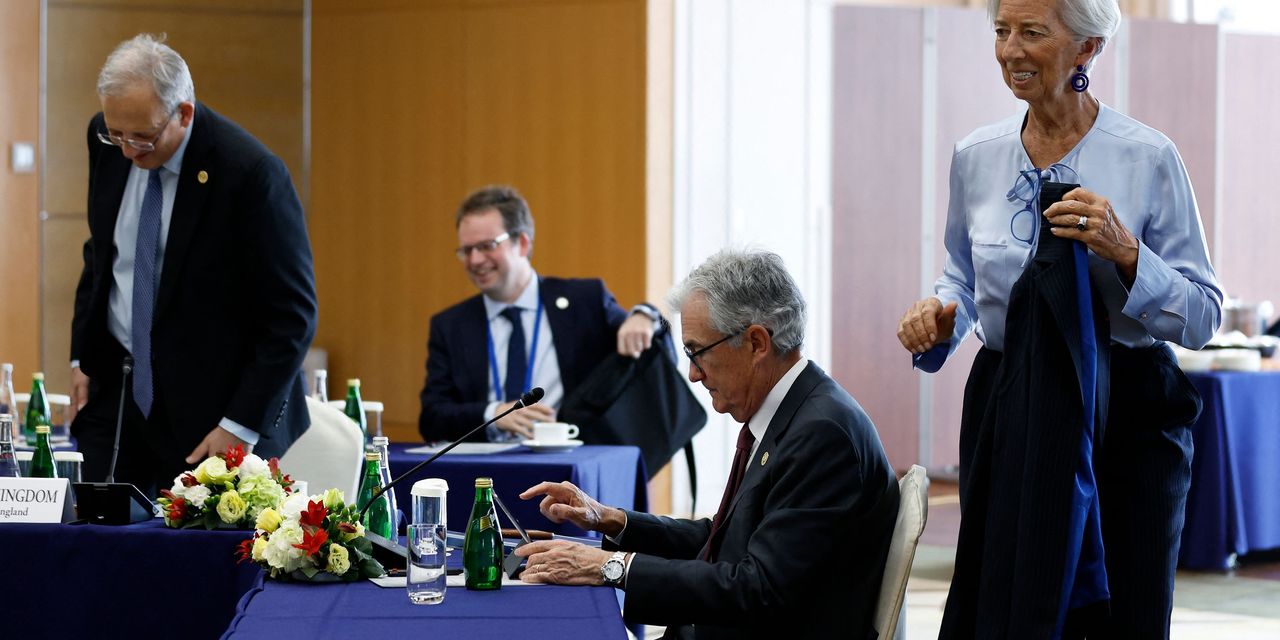The world’s top central bankers on Wednesday vowed to keep working to slay the inflation dragon and not stop until there is evidence they have succeeded.
“Although policy is restrictive, it may not be restrictive enough and it has not been restrictive for long enough,” said Fed Chair Jerome Powell, noting that a strong majority of his colleagues expect two more rate hikes this year.
Powell spoke alongside Christine Lagarde, the head of the European Central Bank, Andrew Bailey, the head of the Bank of England and Kazuo Ueda, the head of the Bank of Japan, at the ECB’s annual forum in Sintra, Portugal.
Powell, Lagarde and Bailey are each fighting above-target inflation. The three central bankers talked about needing confirmation that their interest rate hikes were working before they would stop tightening monetary policy.
“We will be evidence driven so we will wait for the next set of evidence for our next meeting,” Bailey said, in the wake of the Bank of England’s 50 basis point hike last week.
“We are data dependent, we will decide meeting by meeting,” added Lagarde. She said that if the ECB’s baseline view is met then a rate hike in July is very likely.
The pound
GBPUSD,
has gained 4% vs. the dollar, and the euro
EURUSD,
has increased by 2% vs. the greenback, on expectations those central banks have more rate hikes to make than the U.S. does.
Central bankers acknowledged that they are in a tricky place because the economic data is not sending clear signals.
Powell said that the data has been “foggier.”
A key unknown for the central banks is how much of the negative impact from their rate hikes have yet to be felt by households and businesses. This is known as the “lag” of tightening policy.
Economists and central bankers often rely on past experience to forecast future economic trends but coming out of the pandemic, Bailey said that history “is not going to be a great guide” given in part to changes in the market.
Many economists think the central bankers will push their respective economies into recession before too long.
The central bankers tried to suggest this was not a fait accomplis.
“A recession to me is not the most likely case but it’s certainly possible,” Powell said.
Lagarde argued that eurozone economic growth in the first quarter of 2023 was completely flat and so Europe is not technically in a recession.
“It is stagnant to say the least,” Lagarde said, and the latest monthly purchasing managers indexes don’t give great hope of a strong recovery.
“Our baseline does not include a recession, but it is part of the risk out there,” Lagarde said.
Bailey noted that the the Bank of England had forecast a recession back in November. Since then the UK economy has turned out to be more resilient than had been thought, he noted, due to the fall in energy prices.
“We’re not forecasting it but obviously we have to watch it very carefully,” he said.
Ueda said that pent-up demand is bolstering the economy in Japan and that growth will expand slightly above potential for some time.
U.S. stocks
DJIA,
SPX,
were mixed on Wednesday. The yield on the 10-year Treasury note
TMUBMUSD10Y,
slipped to 3.76%.
Read the full article here





